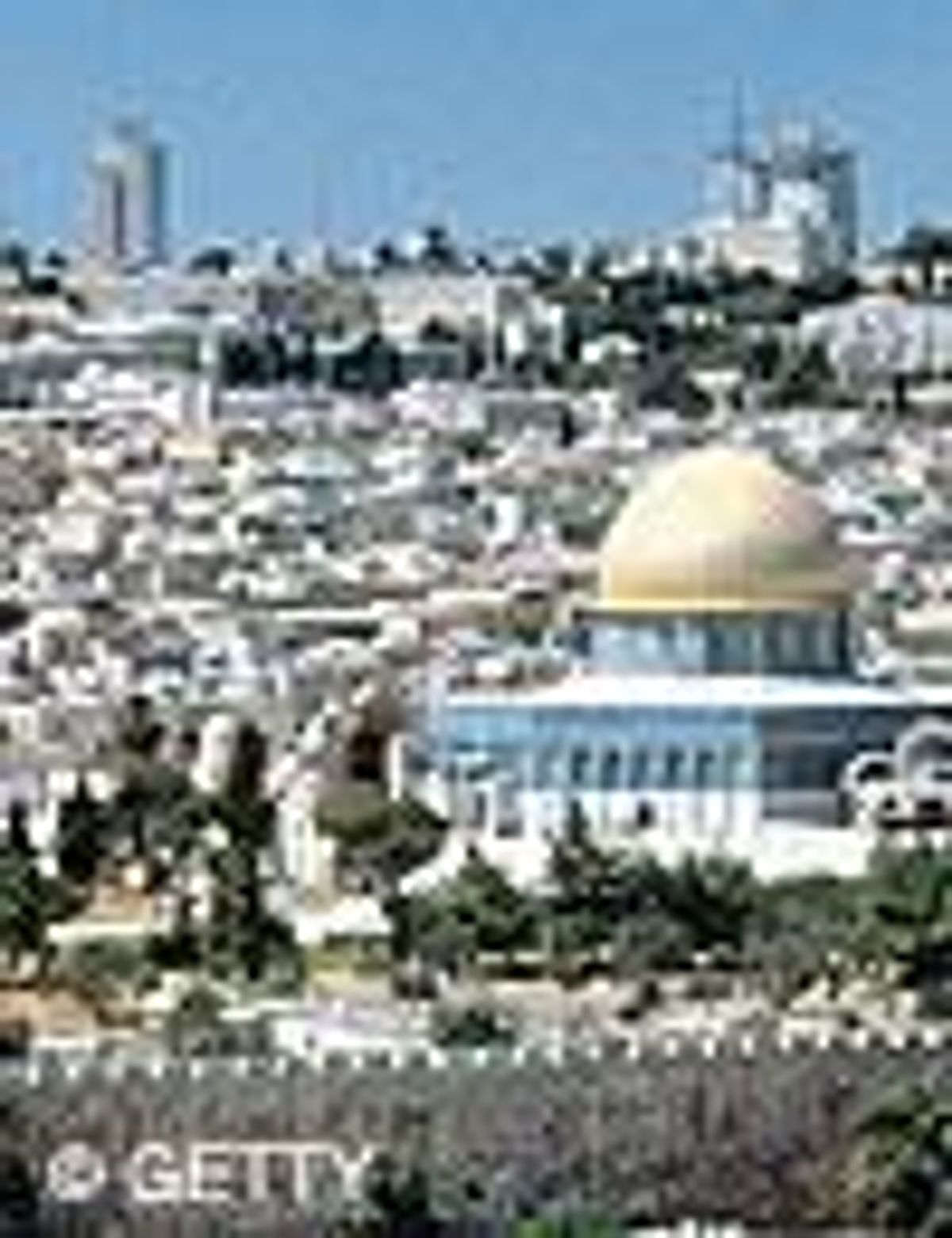Under heavy
police guard, gay activists marched in a gay pride parade in
downtown Jerusalem on Thursday, sparking a noisy
counter-demonstration by ultra-Orthodox Jews and
denunciations by Muslim and Christian leaders. There
were no incidents of violence during the brief event.
The activists,
some wearing rainbow skullcaps or waving rainbow flags,
cheered and sang as they walked just a few hundred meters
along a street that passes in front of the historic
King David Hotel. Police said 2,500 took part.
Police in riot
gear lined both sides of the street, part of the
7,000-strong force deployed throughout the city for an
annual event that highlights the deep divide between
the city's secular and religious communities. Marchers
say they are exercising their civil rights, while
opponents say the march debases the city that is holy to the
three main monotheistic religions.
Opposition to the
march has turned violent in the past, and this year
police far outnumbered protesters.
Marchers carried
posters of Nelson Mandela and the Dalai Lama and signs
bearing messages like ''Out of the closet and into the
street.'' Three men wore matching pink T-shirts, shiny
pink cowboy hats, and carried pink lace umbrellas.
Their shirts read, ''The Israeli Gay Party.''
''I am demanding
my civil rights, including the right to get married and
have children,'' said marcher Guy Frishman, 27. ''I want to
have rights like every other person.''
The owners of
shops selling Jewish religious items along the route stood
by silently, grimacing at the marchers.
But Marlene
Barro, a tourist from San Francisco, a city famous for its
flamboyant gay pride parade, cheered on the marchers.
''But I'm just
disappointed there aren't more people in drag,'' she said.
In one incident,
a lone antigay protester scuffled with police and was
dragged away. Police spokesman Micky Rosenfeld said
that altogether 19 antigay protesters were
arrested trying to approach the march, but there were
no violent confrontations.
Organizers said
they canceled a gathering in a park at the end of the
truncated route because they were unable to get a permit
from the fire department.
Across the city,
several hundred ultra-Orthodox protesters held their
demonstration, bringing traffic to a standstill at the main
entrance to Jerusalem. Trash bins were set on fire,
and smoke and the stench of burning garbage wafted
through the air. Dozens of pedestrians wandered
through the empty streets.
Protest leaders
chanted psalms through loudspeakers, and marchers waved
banners saying ''Shame'' and ''Israeli Supreme Court:
Destroying the Holy City.''
Opponents
appealed to the Israeli supreme court to ban the march, but
the justices ruled Wednesday night that it could go
ahead.
Ultra-Orthodox
Jews have rioted repeatedly over the past week, burning
tires, assaulting policemen, and damaging police cars.
Police spokesman
Rosenfeld said 22 policemen were injured and 130 people
arrested in the run-up to the parade, including a
32-year-old ultra-Orthodox man caught Thursday morning
carrying a homemade explosive device. Under
questioning, the man said he had planned to plant the
explosive along the parade route, Rosenfeld said.
At the 2005
march, an ultra-Orthodox man stabbed three marchers. Last
year, the street parade was canceled because of safety
concerns, and gays celebrated at a sports stadium on
the edge of the city.
The gay pride
event routinely brings together the religious leaders of
Jerusalem--known for their sharp disagreements on most
political issues--in a consensus of
condemnation.
On Thursday,
Sheik Mohammed Hussein, mufti of Jerusalem and Palestine,
denounced the march and criticized the government for
permitting it. ''Such a march contradicts all
religions and morals and the natural human way of
being,'' he said.
Many main streets
in the downtown area were closed hours before the
march, and public transportation was routed away from the
city center.
Israel's Magen
David Adom rescue service said in a statement it was
preparing an ''unprecedented operation,'' readying 200
medics, 45 ambulances, 11 mobile intensive care units,
and a field command center. Additional medics and
ambulances were on standby, the statement said. They
were not needed.
''Perhaps we
should thank the ultra-Orthodox community for giving us what
we want, which is visibility that will lead to a kind of
acceptance of our place in this city,'' said Jerry
Levinson, a gay activist.
Levinson
estimated that 60,000 gays live in metropolitan Jerusalem.
(Ben Hubbard, AP)



















































































Viral post saying Republicans 'have two daddies now' has MAGA hot and bothered